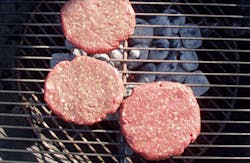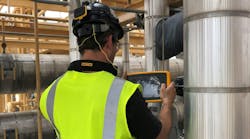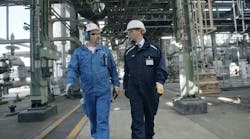Concerns over possible disease outbreak caused by E.coli found in frozen burgers in Canada have prompted an extensive investigation by the Canadian Food Inspection Agency (CFIA) and a recall of products, the official Canadian government website has reported.
The Butcher's Choice frozen burgers are produced by Cardinal Meat Specialists, a family-owned and operated processing company, which works with a number of suppliers, and evidence has been found that at least five people became unwell after consuming the products.
Cardinal Meat Specialists is currently under investigation by the CFIA, which held a special briefing with the Public Health Agency of Canada (PHAC) to confirm the link between Butcher's Choice and the cases of Alberta and Ontario E.coli infections, one of which even led to hospitalization.
According to the CFIA, products manufactured between Dec. 12 and 15 have been recalled and it was found that production from one of the days matched entirely the genetic fingerprint of the type of E.coli associated with the reported cases. E.coli bacteria were also discovered in production dating from a second day but this has so far not been linked to any illnesses. Results from the last two production days are due over the next couple of days, the CFIA announced.
At present, the recalled products are marketed under the brands of Butcher's Choice Garlic Peppercorn Beef Burgers, Butchers Choice Hickory Barbecue Beef Burgers and Cardinal brand Prime Rib Beef Burgers. The CFIA is looking into various ingredients such as spices, domestic beef and imported beef ingredients.
The agency noted that the imported ingredients come from Australia and New Zealand, so it is currently working together with watchdogs from these countries to look into testing information and practices and to establish any possible illnesses reported. According to the CFIA, the investigation reviews product testing results, production records and inspection reports to identify any increased risks of E.coli contamination. In the event that any contaminated ingredients are found, more products can be recalled, the agency noted. Consumers are advised to cook beef to at least 71 degrees C to make sure E.coli bacteria are fully destroyed.
Meanwhile, Cardinal Meat Specialists president Brent Cator commented in a statement released on the company website that the processing firm applies the highest possible food safety standards and claimed that no corrective actions linked to the recall have been initiated by the CFIA. However, he noted that certain products have been tested positive for E.coli and the production has been recalled as a precautionary measure. The problem does not relate to production at the facility as a whole, it just refers to specific production dates and isolated meat inputs. There is no increased contamination risk for other products that the company manufactures or for production dating from other dates, he concluded.


